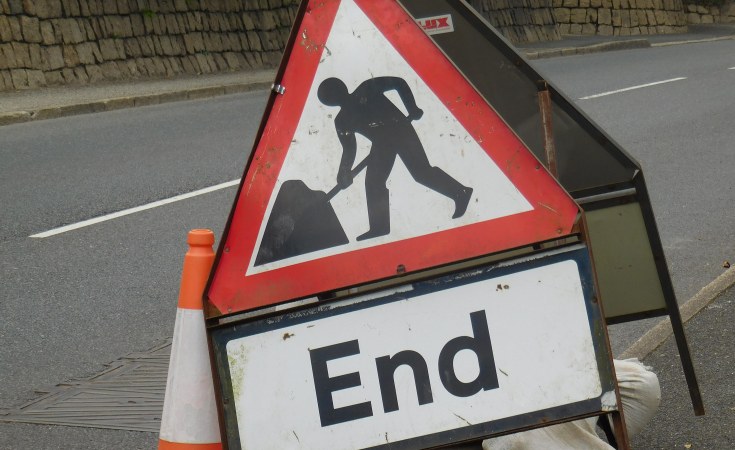The Minister of Works, David Umahi said the Lagos-Calabar coastal highway will gulp N4bn per kilometre and not N8bn per km, as reportedly claimed by former Vice President Atiku Abubakar.
Umahi stated this in an interview on Arise Television on Thursday.
The sum of N4bn per kilometre simply means the total Lagos-Calabar coastal project will be completed at the cost of N2.8trn.
The minister also dismissed claims that the project didn't follow the due procurement process, stating that the contract was awarded on a counter-funding basis and not on a Public-Private Partnership as widely claimed.
Recall that Atiku, last week, questioned President Bola Tinubu administration's decision to allegedly award the contract to Gilbert Chagoury's Hitech without competitive bidding, daring the president to disclose the full cost of the Lagos-Calabar highway project.
The People's Democratic Party, PDP candidate also wondered why the Tinubu administration released N1.06tn for the pilot phase, or six per cent of the project, which begins at Eko Atlantic and is expected to terminate at the Lekki Deep Sea Port.
Reacting to Atiku, Umahi explained that despite the soaring costs of materials in the construction industry due to commodity price inflation and supply chain disruptions, the ministry is committed to prudence, promising to reveal the true cost.
Umahi confirmed that the project would be completed within eight years, with the use of concrete pavement on the four-lane carriageway.
He also explained that although N1.06tn was appropriated, the full amount had not been disbursed.
Umahi said, "People are just building castles without knowledge and they don't know figures, I will run the figures for you. We are going to compare the cross-section of the one the former vice president mentioned that was renegotiated for $11.1bn for 700 km.
"So you have to now ask what was there to be constructed. And what was there to be constructed is the only available design from NDDC.
"They had designed the entire 700 km but we are not following exactly that pattern or right of way. We have a different modification. The original design had two carriageways on each side of the road with four lanes.
"And in the middle, they did not provide for the train track. It's just going to be a water-collecting basin. But the coastal road we are constructing has a total of 10 lanes, you know, not only that it has a total of 10 lanes, it also have what we called shoulders.
"And the total shoulders can be put at about 23 metres. So when you put the total concrete pavement we are doing, it's about 59 metres. When you put the total flexible pavement that he quoted it's about 23 metres.
"And so when you run the figures, you now find out that under his calculation, it is giving you about over N19bn per kilometre. Now if you divide it by the 23 kilometres that they are doing, it is about 2.225 times a standard superhighway carriageway, which is N11.55bn.
"Whereas what we are doing, if you divide it, you get N5.167bn, So when you now divide using our 1.067, you get about N4bn/km. If you go back to what he has quoted, you will get over N8bn.
"So using concrete, which should be more expensive because of the kind of terrain we have, and using flexible pavement, which shouldn't stand the coastal route, you will find out that our cost is N4bn instead of the N8bn claimed by the former vice president."
On the mode of the construction process, Umahi said government never envisaged the project under a Private Public Partnership arrangement but under an Engineering, Procurement, Construction and Finance programme as currently used on the Abuja- Markurdi road project.
He said, "This administration never envisaged the project under Private Public Partnership. It has always been under engineering, procurement, construction and finance. And so under this kind of arrangement, as you have on the Abuja to Makurdi road project, the federal government is required to pay a certain amount for counterpart funding.
"And so in this particular project of Abuja to Makurdi, which is being handled by China Harbour, the government is paying 50 per cent counterpart funding. Then you have also from Makurdi to 9th Mile in Enugu state, where we are also paying 50 per cent counterpart funding. So, there's a marked difference between PPP and EPC plus F. And in this particular project, there will be a negotiated counterpart funding of between 15 and 30 per cent.
"When I was a governor, I had the African Development Bank fund a project through counterpart funding and I used some of the money to build some sections of the road. So part of what we are constructing under sections one, two and three currently funded by the federal government will fall under the percentage counterpartfunding. When we finalise the negotiation, it will be between 15 per cent and 30 per cent."


